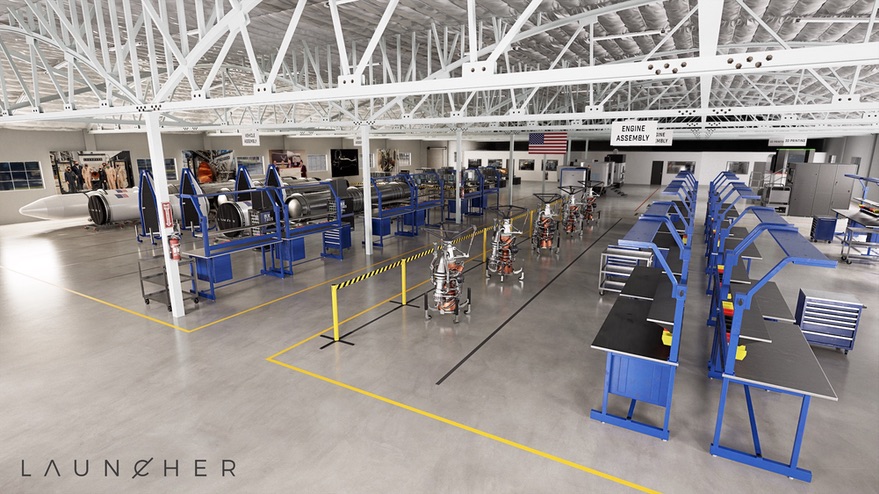Products You May Like
WASHINGTON — Small launch vehicle company Launcher has moved across the country to California as it takes its next steps in the development of its rocket.
Launcher, which had been based in New York City, is in the process of moving into a 24,000-square-foot building it is leasing in Hawthorne, California, a few blocks from the sprawling headquarters of SpaceX. That building will be the company’s home for the development of its vehicle.
Max Haot, who founded Launcher in 2017, said in an interview that the move was a logical step in the company’s evolution. “We were reaching this point where we needed to open a production facility and scale the team, so we made the strategic decision to move here,” he said. “The supply chain is here, the talent is here and many of our customers are here, including the Space Force.”
Launcher currently has 20 employees, of which half are in an office in Ukraine to support design and analysis work on its E-2 engine. The company has a technology assistance agreement with the U.S. State Department to allow it to exchange information with that Ukrainian office. Launcher is planning to hire several engineers in California.
Southern California has become a center of activity in the launch industry in recent years. In addition to SpaceX in Hawthorne, Long Beach is home to Relativity, Rocket Lab and Virgin Orbit. ABL Space Systems, which just raised a $170 million Series B round, is headquartered in El Segundo, just west of Hawthorne.
The Hawthorne facility, Haot said, should be big enough to support the company through the development of its first launch vehicle. “Building the first vehicle, and potentially up to four for test flights, it’s definitely big enough,” he said. “Toward the end it will get a bit cramped.”
The company’s current focus is development and testing of the E-2 engine. Last fall the company performed initial tests of the E-2 engine at NASA’s Stennis Space Center in Mississippi. Those tests were “partially successful,” he said, with successful ignition but some melting in the combustion chamber because of cooling channels clogged with powder left over from the 3D-printing process. More engine tests are scheduled for June or July.
To support that work, Launch is raising a Series A round, which Haot said had its first closing. He declined to state how much money the company is raising in the round. “It’s not enough to get us to orbit, but it’s definitely enough to get us to the next level.”
Launcher originally planned to develop a small launch vehicle called Rocket-1, capable of placing up to 773 kilograms into low Earth orbit. However, Haot said the company’s focus is now on a smaller vehicle, called Launcher Light, that will be similar in performance to Rocket Lab’s Electron. One major difference is that while Rocket-1 would use four E-2 engines in its first stage, Launcher Light will require only one.
“The key reason we did that is the cost to have four test flights, and the time it takes us to iterate, is much less than a four-engine vehicle,” he said.
Launcher, though, is sticking to a schedule that calls for beginning test launches in 2024 and moving into commercial service in 2026, several years after many of its competitors. Haot said he believe the market for small launch vehicles will remain strong for the foreseeable future, and that Launcher will be competitive based on the high efficiency of its E-2 engine.
“If you have two vehicles of the same size and the same cost, the higher-performance one will have more payload mass fraction,” he said. “So, with the same cost but more payload, you can reduce the price to the customer or you can have more margin.”
“In any market, many try to do it,” he said of the dozens of competitors in the small launch industry. “Many get well-funded but go out of business. Some succeed. But there’s no reason, from our point of view, to believe this is not a long-term game.”
